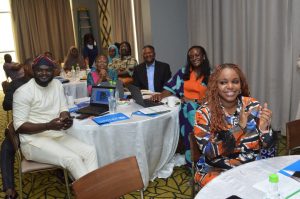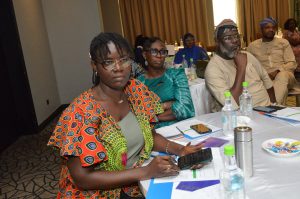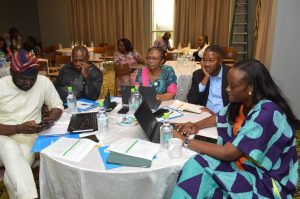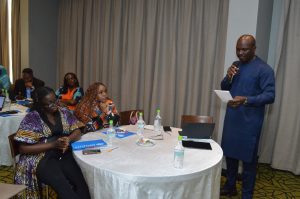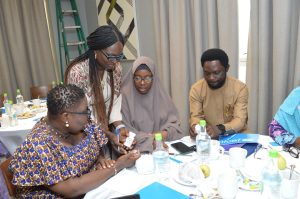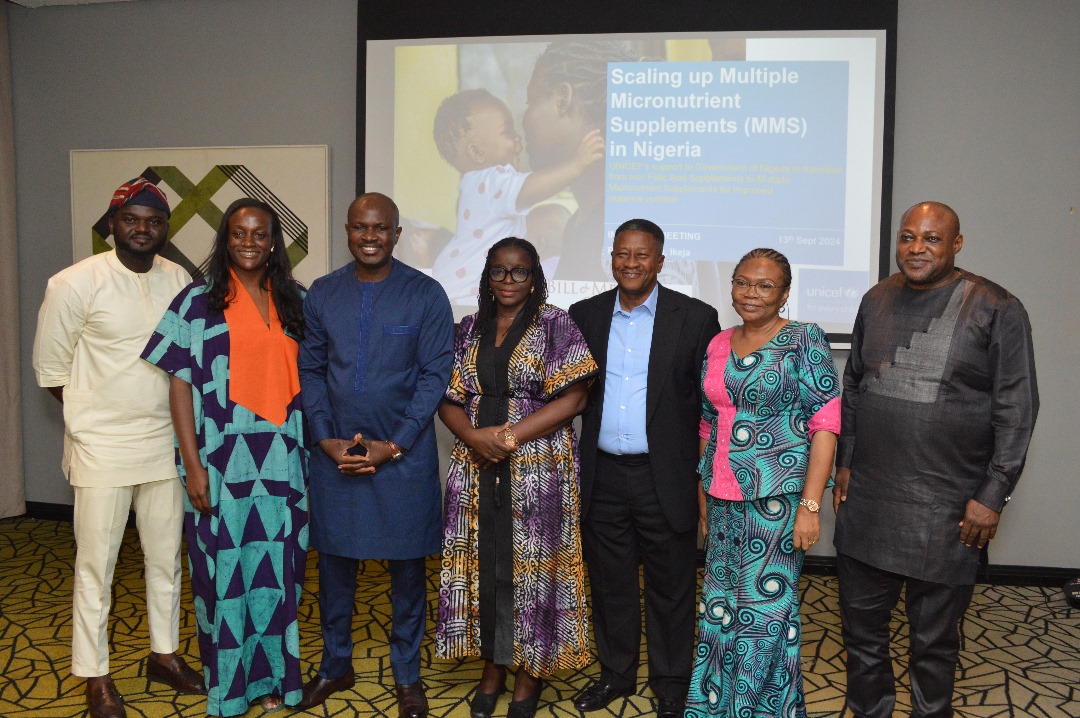
FIGHTING MATERNAL MALNUTRITION: LAGOS SCALES UP MICRONUTRIENT SUPPLEMENTATION FOR IMPROVED PREGNANCY OUTCOME
In a bold move to tackle rising maternal malnutrition, Lagos State Government held a day stakeholders inception meeting with critical stakeholders, including development partners, to work out strategies to scale-up Multiple Micronutrient Supplements (MMS) aimed at improving pregnancy outcomes.
The meeting aimed at addressing maternal malnutrition, held at the Radisson Blu Hotel, Ikeja recently, brought together health professionals, government officials, and representatives of key organizations such as UNICEF, Alive and Thrive, Civil Society Scaling Up Nutrition in Nigeria (CS-SUNN), Nutrition Society of Nigeria (NSN) and the Bill & Melinda Gates Foundation (BMGF).
In her address at the event, the Special Adviser to the Governor on Health, Dr. (Mrs.) Kemi Ogunyemi, who was represented by the Senior Special Assistant to the Governor on Health, Dr. Oluwatoni Adeyemi, highlighted the significance of the project in combatting maternal malnutrition and anemia.
Dr. Ogunyemi emphasized the importance of evidence-based nutrition interventions targeting pregnant women and children under five. “The scourge of malnutrition, particularly iron deficiency anemia, is a major public health concern, and the introduction of MMS is a timely intervention,” she stated.
She said that the MMS project, funded by BMGF, aims to scale up the provision of MMS to pregnant women and nursing mothers across Lagos State. Dr. Ogunyemi noted that although Lagos had been collaborating with Vitamin Angels to provide MMS in the past, more urgent interventions were needed. She said recent findings from the Lagos State Reproductive Health Indicator Survey (LARCHIS, 2022) revealed worsening malnutrition rates among children under five, necessitating immediate action.
“According to the 2018 National Demographic and Health Survey (NDHS), only 59% of women of reproductive age in Lagos met the minimum dietary diversity. This is a far cry from the acceptable figure,” Dr. Ogunyemi lamented.
She posited that the scale-up of MMS is designed to improve nutritional outcomes by addressing this gap, particularly during the critical first 1,000 days of life, which includes pregnancy and early childhood.
Highlighting the affordability and efficacy of MMS, Dr. Ogunyemi noted that the supplements contain 15 essential micronutrients, including iron and folic acid. “Compared to the traditional iron-folic acid (IFAC) supplements, MMS offers a more comprehensive approach to addressing micronutrient deficiencies,” she said. Adding that this is particularly crucial in a country where maternal malnutrition is a leading cause of poor perinatal outcomes.
The Director of Family Health and Nutrition at the Lagos State Ministry of Health, Dr. Folasade Oludara reinforced Lagos State’s commitment to the MMS project. “Lagos State has been at the forefront of maternal health innovations, and we have been using MMS for our pregnant women for the past four years,” she said.
She emphasized the need for uninterrupted supply and distribution, especially considering the growing demand for MMS among pregnant and nursing mothers in Lagos.
“One of the key goals of this meeting was to develop a comprehensive work plan for the scale-up of MMS. The plan, to be jointly created by government bodies, NGOs, and private sector representatives, will ensure effective implementation and distribution of MMS to women in both urban and rural areas of the state.
“Our logistics emergency management unit is already in place, and this will help streamline the distribution process,” Dr. Oludara explained.
She noted that the meeting also underscored the importance of collaboration with private healthcare providers, as public health facilities serve only a fraction of pregnant women in Lagos. “Most women still rely on private healthcare providers, and we must ensure they are not left out of this scale-up,” said Dr. Oludara. She urged stakeholders to advocate for greater awareness and use of MMS in private clinics across the state.
UNICEF’s Nutrition Manager, Prosper Dakuirah, congratulated Lagos State for its achievements in maternal and child health. He commended the state for its high coverage of maternal and child health (MNCH) services, noting that Lagos recently achieved 98% coverage in its vitamin A supplementation efforts. “The scale-up of MMS is a game changer in improving the nutritional status of pregnant women,” he stated.
Dakuirah also revealed that Lagos State is expected to receive its next consignment of MMS soon, as part of UNICEF’s broader support for maternal health in Nigeria. “Through funding from the Gates Foundation, we are ensuring that every pregnant woman in Nigeria has access to MMS, which has been proven to be both safe and cost-effective,” he said.
As the meeting concluded, stakeholders expressed optimism about the project’s potential to reduce maternal and child mortality in Lagos. “This is a collective responsibility,” said Dr. Ogunyemi. “By scaling up MMS, we can significantly improve pregnancy outcomes and contribute to a healthier future for Lagos State.”
During her presentation on the nutritional situation in Lagos State, the State Nutrition Officer, Mrs. Taiwo Fadairo highlighted the pressing issue of malnutrition, which continues to pose a significant public health challenge in the region. She emphasized that while malnutrition stems from inadequate nutrition, adequate nutrition remains the foundation of good health.
Fadairo pointed out that many pregnant women in Lagos are unable to meet their daily nutrient requirements due to poor dietary intake, necessitating supplementation to ensure the well-being of both mother and child.
She advocated for greater investment in nutrition, particularly for vulnerable groups such as pregnant women and young children. She stressed the importance of strategic interventions, including the scale-up of Multiple Micronutrient Supplements (MMS), to address malnutrition across the state. These efforts, she noted, are crucial for improving maternal health outcomes and preventing complications related to nutritional deficiencies during pregnancy.
The work plan developed during the meeting will guide the roll-out of MMS across Lagos, with stakeholders agreeing to meet periodically to monitor progress and ensure the success of the initiative.